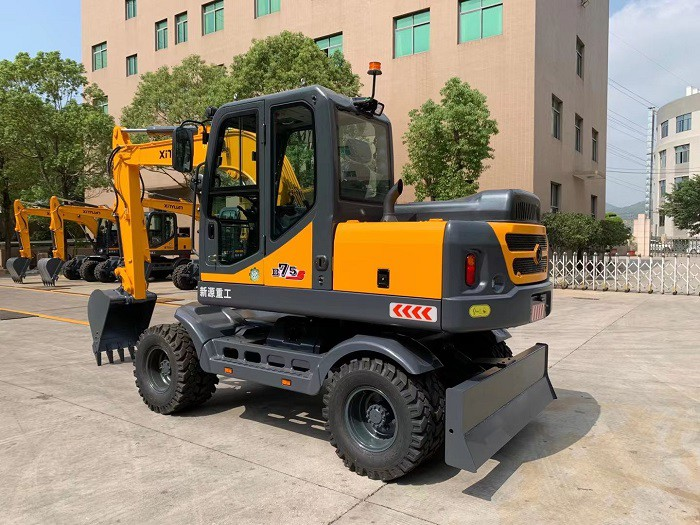For excavator drivers, it is very important to master the icons of each fault alarm and find the fault point quickly and accurately. Oil pressure alarm is one of the most common but easily ignored alarms. Each time the engine is started, the oil pressure warning lamp will go out within 5 seconds. If it is always on or flashing, it indicates that there is a fault problem. However, because it will not immediately affect the normal operation of the excavator, many drivers directly ignore it.
Engine oil is mainly used to reduce the friction between the moving parts of the engine and ensure the flexible operation of the engine. This is the lubrication function. In fact, besides lubrication, engine oil also has many functions, such as cleaning, cooling, rust prevention, sealing, oxidation resistance, buffering, etc. Therefore, once the engine has an oil pressure alarm, if it is ignored, the engine will have a serious failure and will be scrapped. This article will summarize the possible consequences if the oil pressure alarm is ignored.
1) If the engine is not lubricated with pressure oil, the engine piston, cylinder liner, crankshaft bearing and connecting rod bearing will be seriously worn. It causes engine power to drop, oil burning, blue smoke and other faults.
2) If the engine is not lubricated with engine oil for a long time, it will also cause serious damage to the camshaft and rocker arm of the valve mechanism, and the engine will also have the fault of abnormal noise and high temperature.
The alarm icon on the instrument panel is the most intuitive reflection of whether the excavator is in a normal state. Unlike the hydraulic system and other core positions, the fault is obscure and troublesome to deal with. As long as the driver carefully observes and sees that the alarm icon is on, the fault can be solved quickly.
In addition, it should be noted that once a fault such as oil pressure alarm occurs, it will not immediately cause serious damage to the engine or excavator. However, the engine must be shut down immediately so as to avoid greater engine failure.

